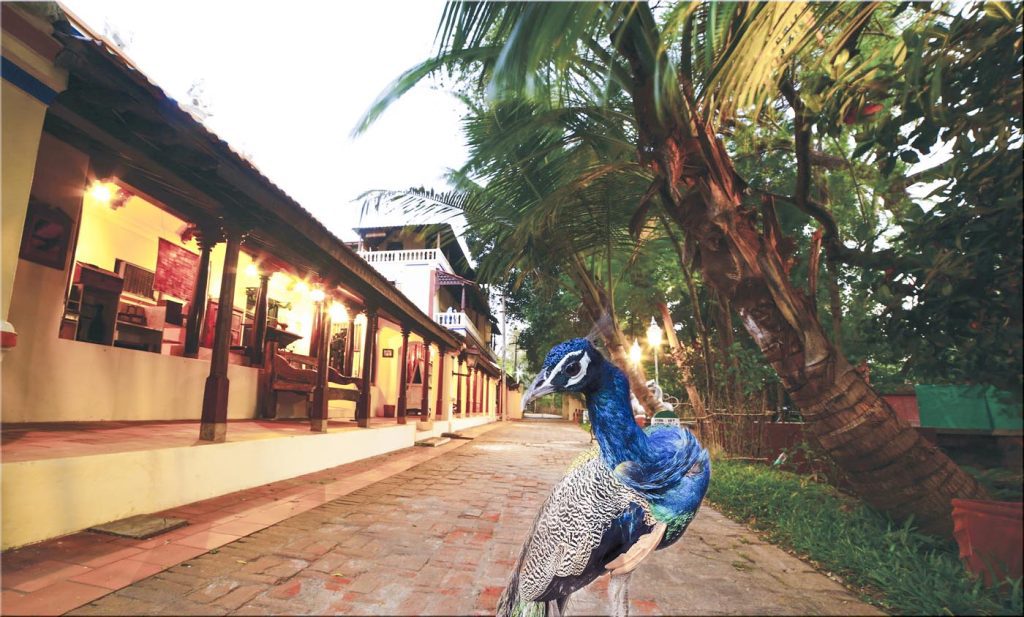Sample a fusion of rich accommodations, sustainability and sacredness, while exploring South India’s heritage and culture deep in rural Tamil Nadu
By Balakumar Muthu, Chennai
all photos: balakumar muthu
Located amidst the grandeur of three famous UNESCO World Heritage destinations—Darasuram, Gangaikondacholapuram and the Brihadeeswara Temple, known jointly as the Grand Living Chola temples—INDeco Hotels is a haven of tranquility and heritage stay. Nestled in Thimmakudy Village at Swamimalai, Kumbakonam, Tamil Nadu, INDeco offers a luxurious escape from city life while immersing guests in the pleasures of South Indian village atmosphere. It is a convergence of leisure, heritage, culture, spirituality, health, nature, aesthetics, fine arts and entertainment.
INDeco Hotels was established in 1994, restoring three illustrious but dilapidated 17th-century Chola-dynasty villages while preserving their culture and traditions. Every aspect of this hotel, from bricks to its artifacts, tells a story, creating a harmonious blend of preservation and world-class hospitality. Indeco enjoys a unique blessing: the mighty Cauvery River flows nearby, and an intricate canal system brings its sacred waters into the heart of the hotel.
I was given the opportunity to meet Steve Borgia, founder, chairman, managing director of INDeco Hotels Swamimalai and part-time Indologist. He said with enthusiasm, “Imbibed with love for life and delight for nature, I am enthralled by rural India.” His love for rural India and its cultural depth inspired the creation of this unique hotel, where he curates local culture for a global audience.
For its indelible mark on the global hospitality landscape, INDeco has earned esteemed awards and recognitions. It is India’s only recipient of the Global Ecotourism Award, a testament to its pioneering efforts in sustainable tourism. Fortune magazine bestowed upon it the “6th Best Idea to Save Planet Earth” award, recognizing its exceptional contributions to conservation.
Luxurious Experiences
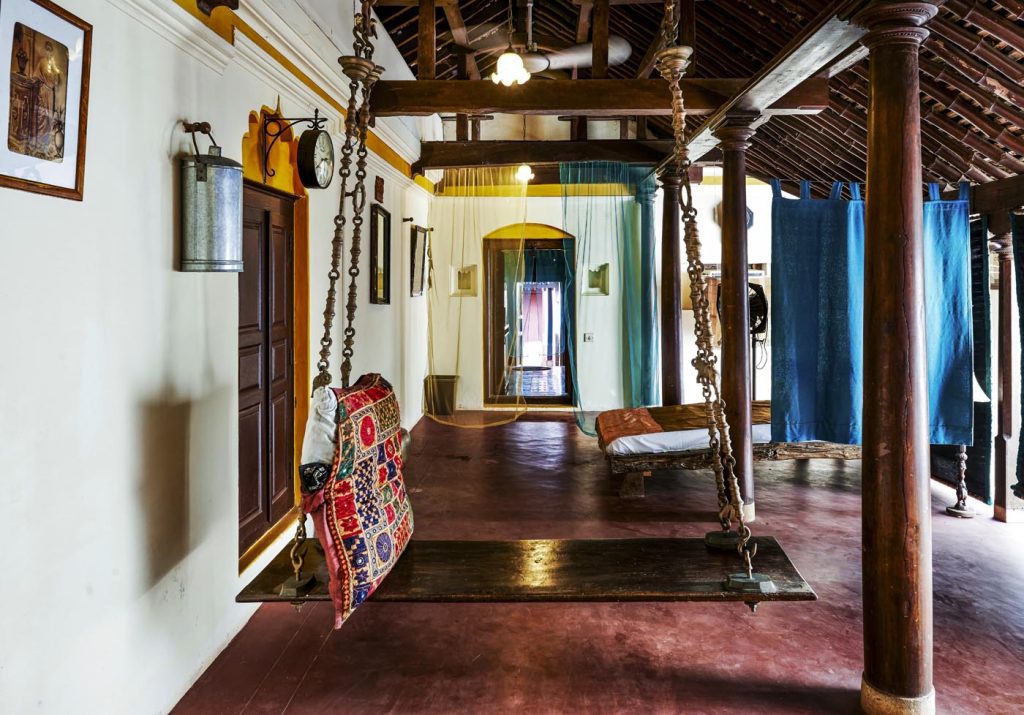
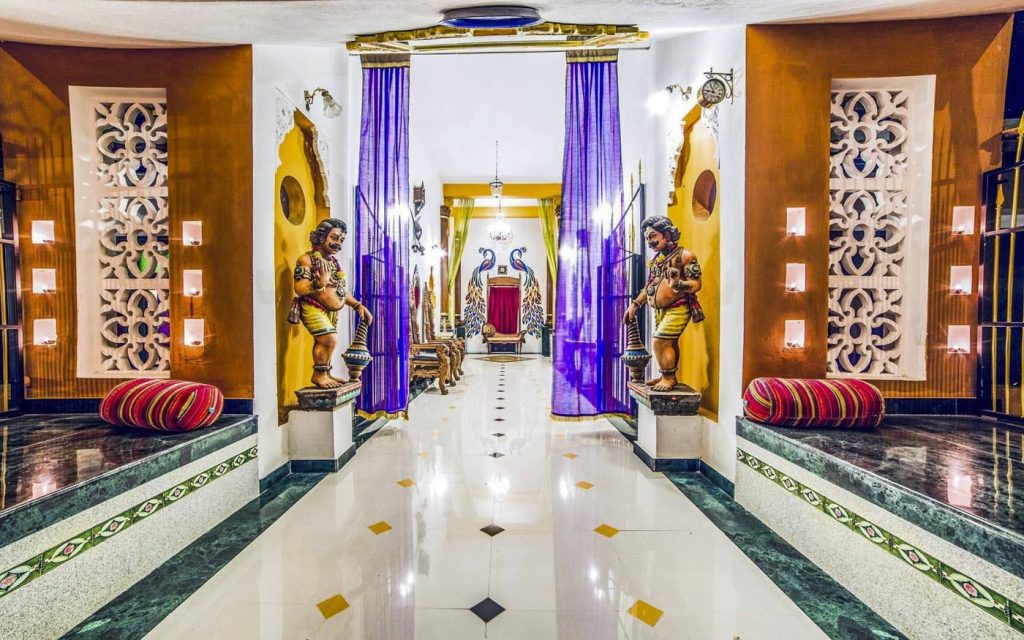
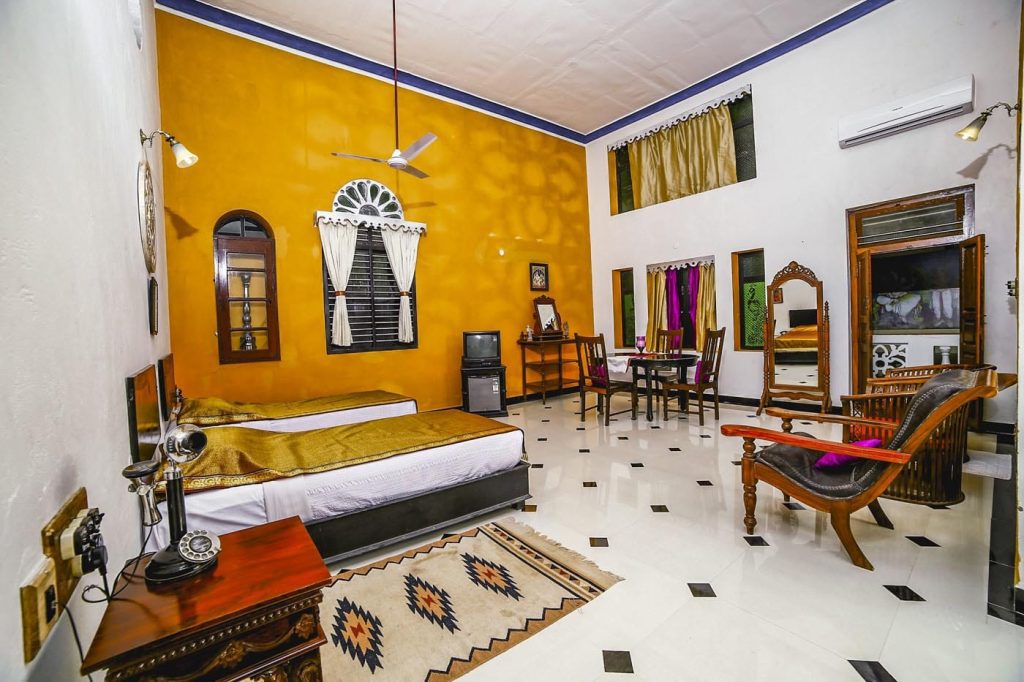
The rooms at INDeco, priced between us$45–$95 a night, are immersive experiences. The Heritage Block exudes old-world charm, while the Palace Block and Zamin Block offer spacious rooms with classical ambiance. Each space is unique; the creative spirit has been harnessed to weave a tapestry of comfort and artistry in every room. With over 80 ethnic suites to choose from, no two rooms are alike in size, décor or ambiance.
Accommodation are adorned with world-famous Tanjore paintings, sculptures and antique furnishings. Guests are immersed in South India’s vibrant colors and intricate designs. Valuable artifacts are displayed in guest rooms and public areas, inviting one to journey back in time.
The hotel has meticulously preserved the authenticity and charm of the property. The staff, employed from the local communities, proudly wear traditional attire, the men wrapped in white cotton dhotis, and the women in silk sarees. The consumables, also, are sourced locally.
INDeco offers a temple tank with farm-pump bathing, allowing guests to partake in the irrigation process before the water flows into neighboring farms. Visitors are immersed in South Indian culture, cuisine, heritage, villages, museums, flora and fauna with ancient terracotta-tiled roofs, ornate wooden doorways and lush courtyards of bygone eras. A recent guest wrote on tripadvisor.com, “We and our kid love the surroundings, it felt very earthly. Best place for family trips. We explored ancient memories taking us to that era. A warm and homely feel, full of positivity. The rooms give you a royal feel.”
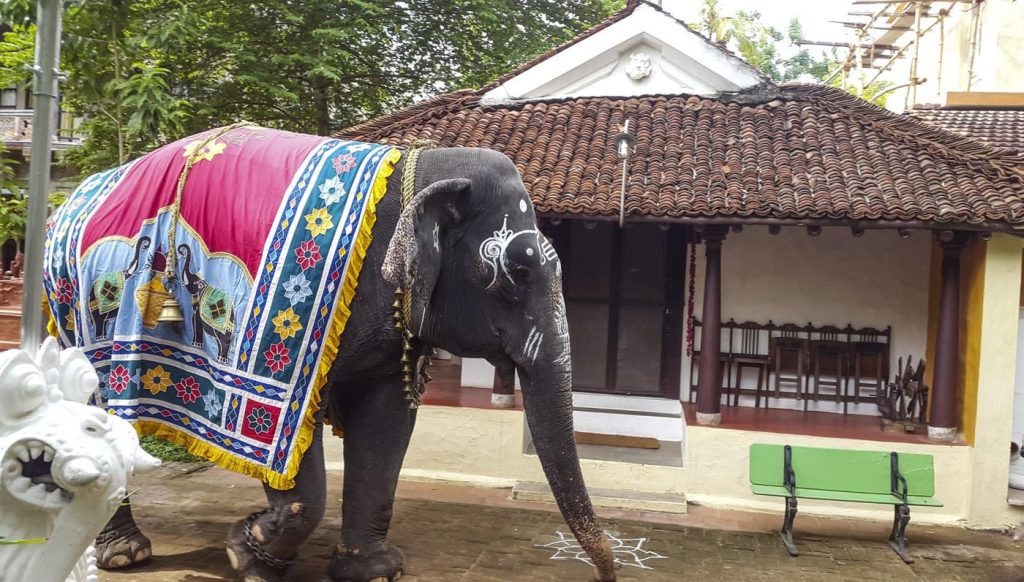
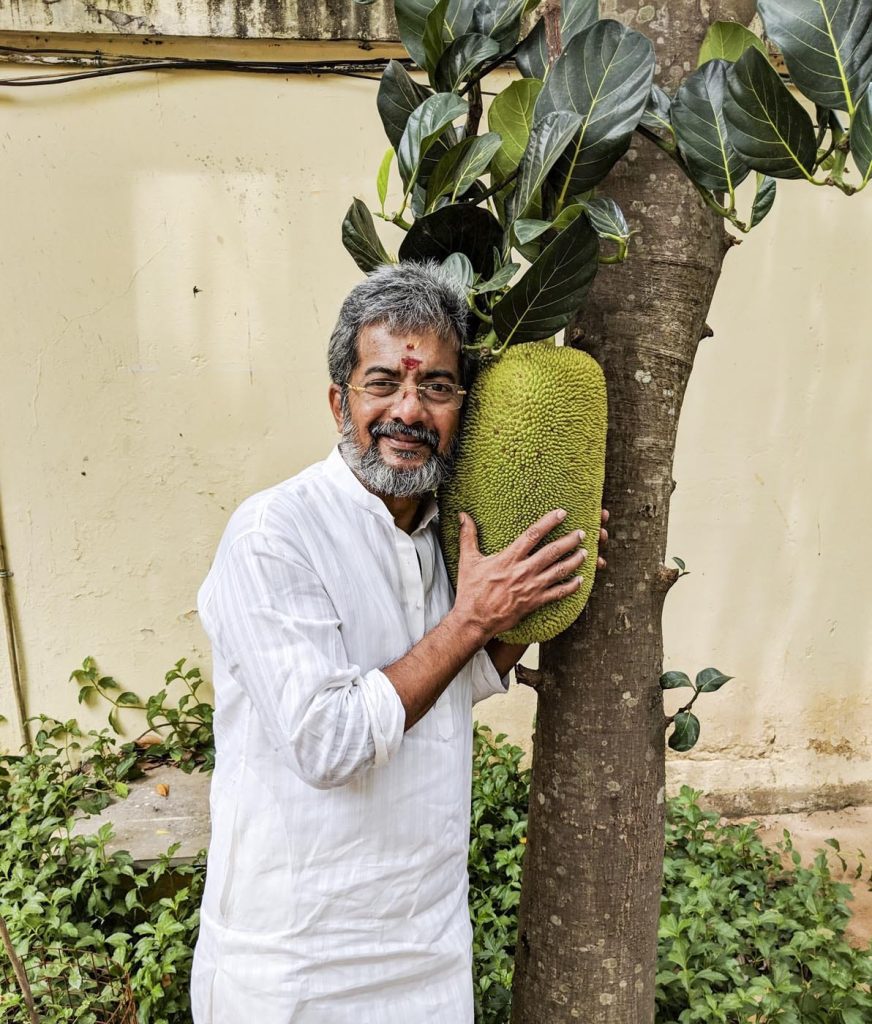
Kanchi Sankaracharya’s Residence
This estate includes a residence once used as a home for the late Shankaracharya of Kanchi, Sri Chandrashekarendra Saraswati Swamigal (1894-1994), the great Hindu philosopher and reformist. It is a traditional Tanjore house dating back to 1896. This sacred space pays a heartfelt tribute to the spiritual legacy that permeates the region, inviting guests to embark on a deeply meaningful journey of connection with the profound spirituality and wisdom that Maha Periyava shared during his stay in this hallowed place.
Embracting Sustainability
The name “INDeco” is a fusion of “India” and “ecology,” a testament to its commitment to environmental stewardship. The hotel is 100 percent organic—recycling and treating all its water and waste, and demonstrating in many ways its commitment to sustainable businesses in small villages.
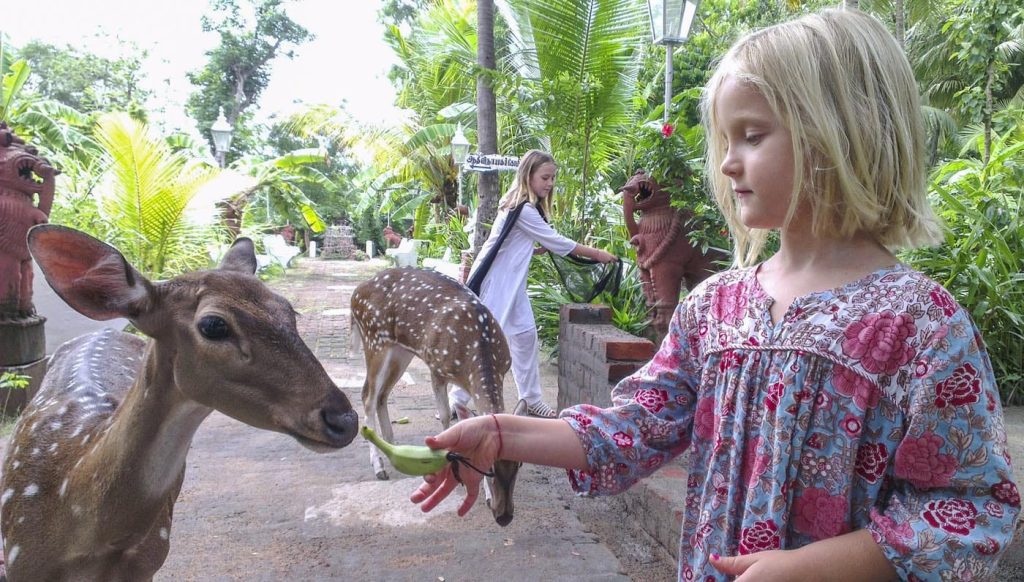
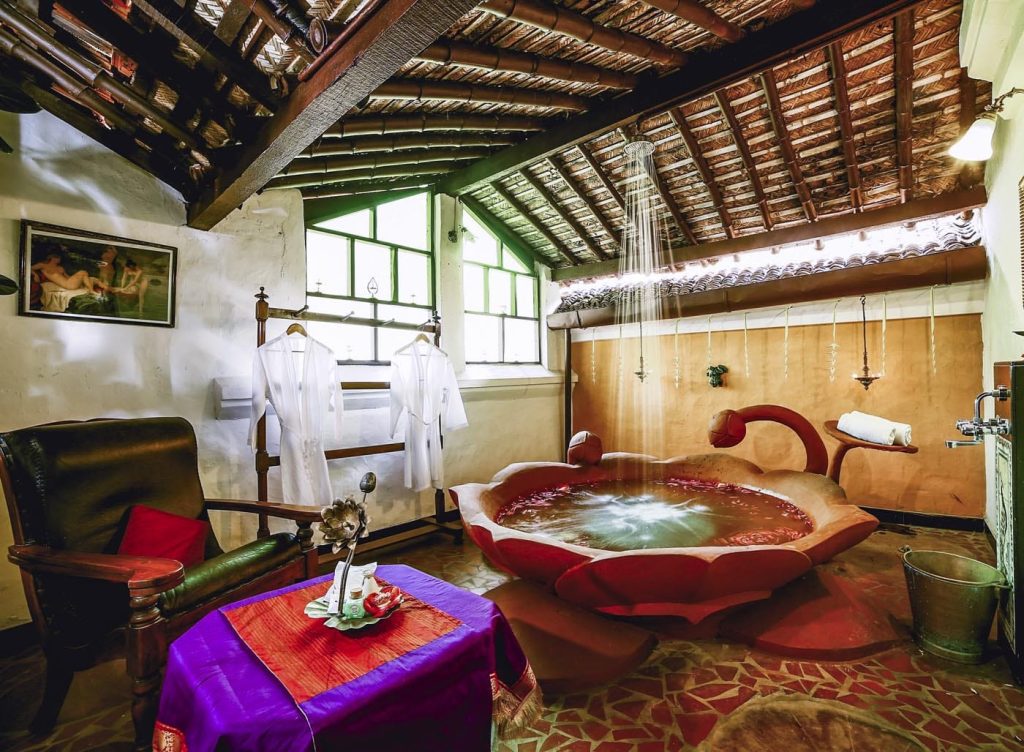
Steve Borgia believes that sustainability and spirituality are two essential facets of creation. One serves planet Earth and all the life it harbors, while the other nurtures your inner self and your connection with the Divine. For Steve, safeguarding these two realms is non-negotiable.
Wandering the property, we notice signs emphasizing the hotel’s commitment to nature, prioritizing even the smallest insects and creatures. The dedication to sustainability is evident in the massive amount of trees and plants introduced, restoration of ancient structures, rejuvenation of lakes, the return of birds and animals, the unearthing of rivulets, the revival of traditional practices and the creation of ecological niches.
As we chat, Steve recollects that while most of his peers aspired to become doctors, engineers or pilots, his childhood dream was to become a Maharaja. Despite the laughter and skepticism of others, he held onto this aspiration—not for the pursuit of wealth but to combat hunger, nurture the environment, build majestic palaces, create enchanting gardens and care for the temples and schools in his vicinity.
INDeco has ventured into the most remote and humble villages, breathing life into now thriving businesses that were firmly anchored in principles of sustainability, responsibility and creativity. Amidst these serene landscapes, Steve Borgia carved his kingdom with a dedication to community empowerment.
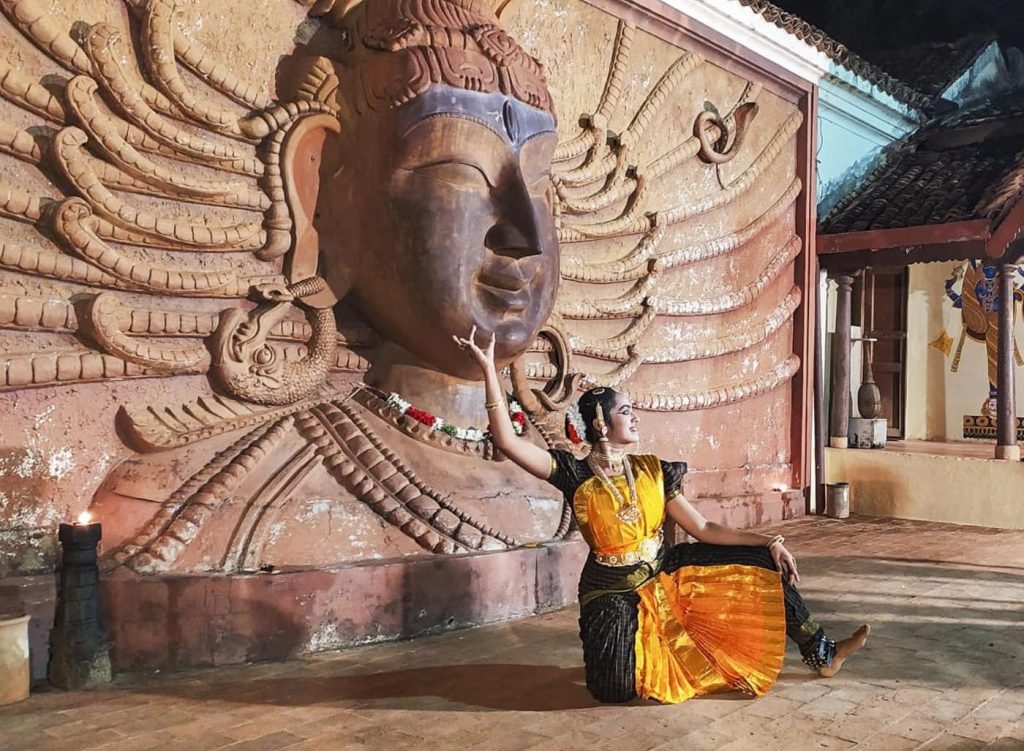
Supporting the Community
Feeding the rural community has always been Steve’s foremost concern, the driving force behind his mission. INDeco’s workforce—like all the produce used in its restaurant—is fully drawn from the neighborhood. An employee notes that INDeco’s initiative has made a significant impact on the area, elevating average income to several times what it was previously.
INDeco emphasizes skill development programs for local youth, creating alternative livelihoods for beggars, restoring and preserving temples, safeguarding local arts, lifestyle, practices and beliefs, and constructing essential facilities in primary girls’ schools.
Historical Treasures
Within INDeco’s premises lies the Steve Borgia Indian Heritage Museum, which has the mission to source, preserve and exhibit vintage objects from the past, preserving them for the appreciation of future generations. It is praised as one of the finest civilian collections anywhere in India.
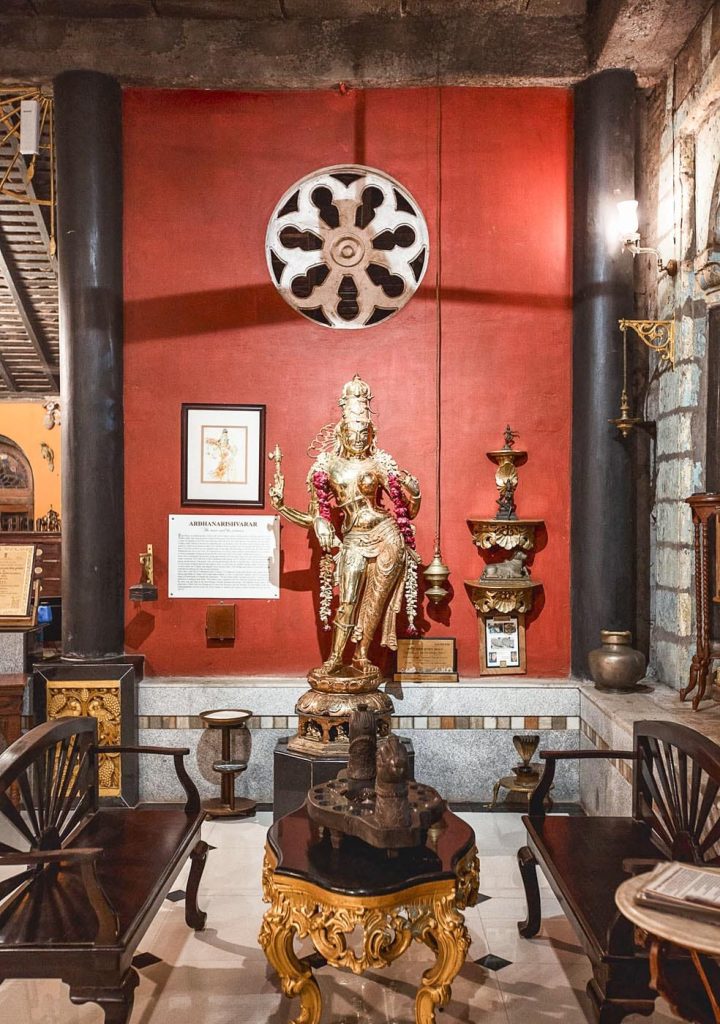
This museum houses an extensive and diverse collection of rare and contemporary objects. Peruse statues of Gods and Goddesses, kerosene-operated fans that once provided respite from sweltering Indian summers, and majestic mahogany cots that cradled slumberers many decades ago. With a collection of vintage cameras and sound equipment from modern theaters, vintage cars, colonial furniture, British clocks and fans, it continues to show off India’s rich and varied heritage.
The Mint Palace
Another INDeco initiative is exemplified by a 17th-century building known as the “Mint Palace,” built in the Madras Presidency by Shekhawati Bansilal, the official gold coin minter. When the beautiful structure was razed to the ground by the state government in 2010 to make way for a complex, INDeco purchased all its pieces and painstakingly reassembled it on the hotel grounds in Swamimalai, transforming it into a charming museum.
A Moment from
The Freedom Struggle
Netaji Subhash Chandra Bose, a famous Indian freedom fighter, was imprisoned in various jails during his struggle for India’s freedom. One of the solitary cells where he was imprisoned was at the Madras Central Jail. That very unit has found its home at INDeco.
South Indian Cuisine
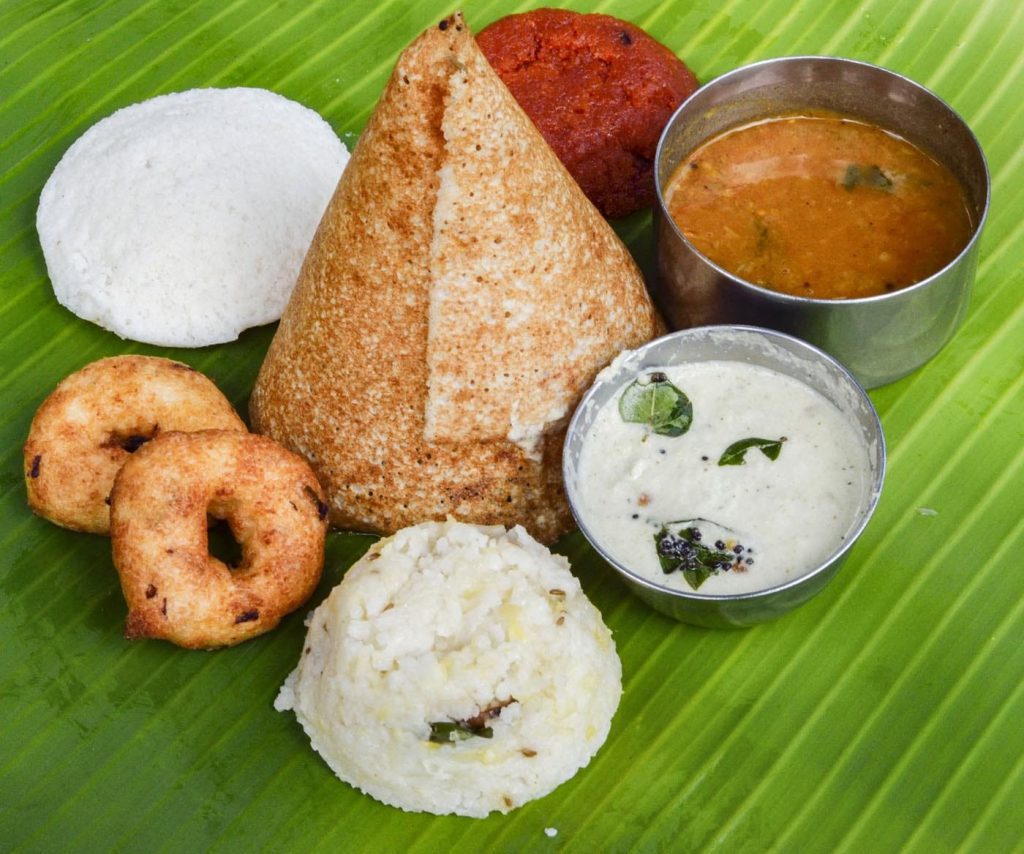
INDeco’s South Indian vegetarian cuisine leads our taste buds on a culinary journey to celebrate the diverse flavors of Tamil Nadu. The hotel’s in-house restaurant serves an array of traditional dishes using age-old homestyle recipes and locally sourced fruits and vegetables. This farm-to-table approach not only guarantees the freshness and quality of the ingredients but also promotes responsible, self-sustaining food practices.
Abjuring air-conditioned restaurants in favor of open-air dining spaces under the shade of banyan trees or amidst the charm of farm settings reflects the commitment to reconnecting guests with nature.
Cultural Immersion
INDeco offers a plethora of Indian cultural activities like classical music, Bharatanatyam dance performances, iconography, yoga, meditation camps and museum walks, allowing guests to not only witness but also actively participate with local artisans in their work, and partake in cultural workshops.
What’s Coming Next
Departing are the days when longstanding pilgrimage destinations in India and Sri Lanka only offered austere accomodations. Today’s more affluent pilgrims expect more. INDeco Hotels continues to expand its footprint, from the Swamimalai property to the serene landscapes of Yercaud. Anticipation is building for their forthcoming venture called “The Last Resort” in another famous temple town—Palani. But priorities remain constant: the embrace of nature and the genuine warmth of Indian culture, hospitality and sustainability.
